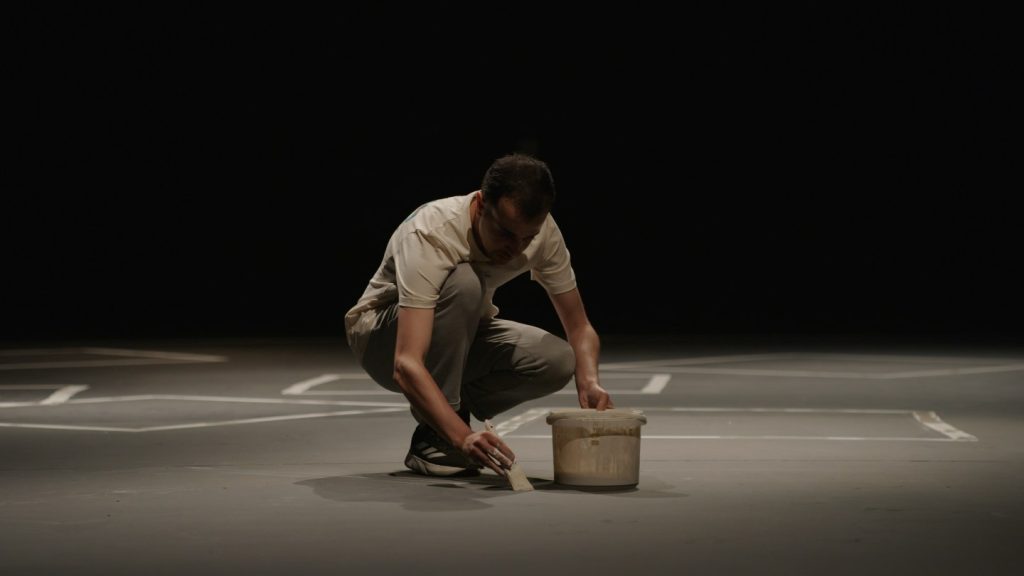For Nicolas Wadimoff, Who Is Still Alive is nothing but “an absolute necessity.”
The Swiss director has long-dominated the doc and feature film space for his politically provocative work, including on the 1997 immigrant-centered story Stowaways with Denis Chouinard and the Marseille-set martial arts docu-drama Spartans. For much of his life, however, he’s been routinely pulled back to the stories of Gaza, such as on 1992’s Les Gants d’Or d’Akka, about a Palestinian boxer with Olympic dreams forced to fight under the Israeli flag, or Aisheen (Still Alive in Gaza), focused on the aftermath of Israel’s 2008 air strikes on the Gaza Strip.
In his latest feature, a documentary titled Who Is Still Alive premiering in Giornate Degli Autori’s official selection at Venice, all Wadimoff is asking of his audience is time. “It takes time to hear and feel what the protagonists went through,” he tells The Hollywood Reporter while on a break from color grading his new film. “This isn’t just another war; it’s something else.”
In Who Is Still Alive (Qui Vit Encore), nine voices from Gaza tell their story. The group — made up of women and men, old and young — reflect on their life before and during the ongoing war, outlining their neighborhoods in chalk from memory and detailing their close relationships with the friends, neighbors and family they’ve now lost.
Each participant has physically survived the Israeli military barrage in their native Gaza, some barely escaping out from under the rubble of their own homes, but still bear the mental wounds of a region reduced to ash. The war, inflamed to new heights following Hamas’ Oct. 7 attacks on Israel, have now tipped into a mass humanitarian crisis: the UN has warned of widespread starvation while Israel and Palestine fail to broker a permanent ceasefire.
“I would like viewers to discover them, despite the immense suffering that binds them, in all their complexity and singularity. Like all human beings,” Wadimoff says. He purposely chose to spotlight more “middle class” Palestinian stories — one contributor is a talented musician, another a photographer and social media influencer — to drive home the close gap between our own humanity and theirs.
“I don’t say to myself, ‘I’m going to make a film about this or that,’” Wadimoff continues when asked about his motivation to return to the struggles of Gaza. He has visited the region many times, and came up with the film upon reuniting with one of the participants, an old friend, who had fled to Cairo in the wake of the war.
He remembers sitting down in Egypt with his daughter, a photographer, who had accompanied him, and the group of Palestinians who had made it out. One woman told him: “My body is here, but my mind, my soul, my heart is not here. So I’m going to make a coffee. I know how to make a coffee. I’m moving from one point to the other, but there is nothing left inside. I’m just like a robot.”
Wadimoff says the significance of the crisis in Gaza is a global issue: “When we are talking now about Gaza, we’re not only talking about Gaza, we’re talking about our humanity that we are all losing,” he says. “And if we are losing humanity for Gaza, we will lose it for not only for Ukraine, but for everything — the United States, for England one day, for Switzerland.”
It’s why the filmmaker is so pleased to be able to share his new film in Venice, which he admits was the “best case scenario” when discussing possibilities with the documentary’s cast. In particular, the Giornate Degli Autori section is “the best setting to host the film,” he says, lauding the warm welcome from organizers: “The reactions from the programming team have been very encouraging and promising. We already feel home, even before getting there.”
It’s signifies a shift in Palestinian storytelling, something he believes is becoming more regular in the feature film space. “Stories about Palestine, whether they are written by Palestinian filmmakers who carry deep within themselves all the wounds of their people, as well as their incredible resilience, or by other filmmakers… [They] have in common that they speak of Palestine, but also of the world in general,” says Wadimoff. “As if Palestine concentrated within itself, in a way as powerful as it is dramatic, all the issues of our current world. But the most important thing is that Palestinian filmmakers have been able to overcome the weight of their history to powerfully express all their artistic talent.”
The Swiss might be talking as a director, but Who Is Still Alive is also, it turns out, a deeply personal project for a man who has witnessed atrocities throughout the Middle East. “I know a lot of people in Gaza,” he adds. “Over the years I was able to forge strong bonds, friendships were born. Some are dead today. The film will not bring them back. But it is the least I owe to this land and to these people who have given me so much.”

